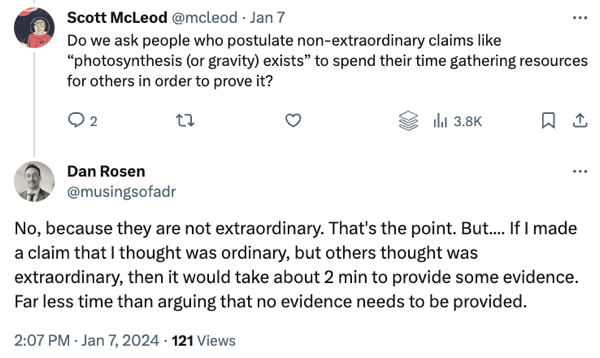
09 Jan Schools can feel totalitarian to many students
I participated in a Twitter conversation yesterday that bounced around a bit. I believe that most of the folks I conversed with were from the United Kingdom. I also believe that many of them were in favor of what we might call ‘strict discipline’ in schools. One of the advantages of having a blog is that I am able to write about topics in ways that may be less possible over on Twitter. So with a thank you to my conversation partners in yesterday’s discussion, I’m going to dive right in…
I made two claims yesterday that I thought were uncontroversial but apparently were. The first was that:
1. There are lots of schools and classrooms in which children and families feel ignored, marginalized, controlled, and … perhaps … oppressed. Schools are not all wonderful caring places for every child.
Anyone who is involved with schools and children should know that some students thrive at schools and some feel marginalized. Some children feel empowered and validated by their school … and some don’t. Some children might even be actively harmed by schools. Schools are not the idyllic spaces for many children that we hope they might be. There are a variety of examples that we might come up with. Here are a few:
- Teacher cuts girl’s hair without permission
- School districts deny trans schoolchildren the ability to use bathrooms in line with their gender identities
- Student suspended over hair style
- Teacher drags special needs student by hair
- More than 68% of LGBTQ students feel unsafe at school
- Spatial and social segregation in a Spanish immersion school
- States ban use of students’ preferred pronouns
- Hidden segregation within schools
- School policies restricting bathroom access are problematic for many menstruating students
- Disparities in school discipline
- Students with disabilities among those who have lower sense of belonging at school
I don’t think that recognizing that schools often are marginalizing spaces for children is “inaccurate or grossly offensive,”nor is it a “slur against teachers,” nor does it obviate the fact that “the vast majority of teachers and school leaders are overworked, underpaid, and care deeply about the students.” We can have good-hearted, hard-working educators and school systems who care deeply about children AND students can still can feel ignored, marginalized, controlled, or oppressed within those systems. Both can be true.
Researchers study students’ negative experiences in school and… guess what?
2. We have plenty of research to back up the idea that children and families often feel ignored, marginalized, controlled, or oppressed at school.
Equity scholars and other researchers have studied student and family perceptions of schools for decades. These studies are pretty easy to find. Here are some example searches designed to pull forth negative perceptions:
- “Black students negative perceptions of school” (Google Search, Google Scholar)
- “Hispanic students negative perceptions of school” (Google Search, Google Scholar)
- “LGBTQ students negative perceptions of school” (Google Search, Google Scholar)
- “Low income students negative perceptions of school” (Google Search, Google Scholar)
- “Low-achieving students negative perceptions of school” (Google Search, Google Scholar)
- “Students with disabilities negative perceptions of school” (Google Search, Google Scholar)
- “Homeless students negative perceptions of school” (Google Search, Google Scholar)
- “Multilingual learners negative perceptions of school” (Google Search, Google Scholar)
Many of the stories and studies that appear in these searches explicitly discuss school behavior systems and policies. We also could add the words ‘discipline’ or ‘behavior policies’ to the search terms above to find more specific narratives or research related to school control of student behaviors.
I don’t know why my second claim seemed so fantastical to some of my conversation partners. Some believed that this research didn’t exist, or that it would be ‘flimsier than a soaking wet paper towel.’ But a lot of research has been published in peer-reviewed academic journals noting many students’ negative perceptions of schools generally and/or their discipline policies specifically. Education and equity scholars study a wide variety of topics related to traditionally-marginalized groups. For any demographic subgroup, there’s probably a decent body of research cataloging their perceptions of school, and often those perceptions of school are negative. Despite our best efforts, schools often mirror the marginalization of students and families that occurs outside their walls. At scale, this is a lot of children and families.
Many of my conversation partners kept asking me to provide evidence for one or both of these claims. I kept replying that they could easily find it but they didn’t believe me. I realized later that these two claims were so ‘extraordinary’ to them that they were lumping me with flat earthers.

Here are some other topics that we discussed yesterday…
3. Are schools and classrooms actually oppressive or is that just the perception of some students and families?
Does it matter? Perceptions shape reality. Since ‘oppression’ and ‘marginalization’ are subjective rather than objective terms, we’ll never be able to answer this question, and I’m not sure that’s the relevant issue anyway. I think that the relevant concern is “Do we care that some students and families feel that our schools and classrooms are marginalizing and oppressive and, if so, what do we do about it?”
If you have read through some of the links above and still think that schools never emphasize control and compliance instead of care for children and respect for fundamental human dignity – or if you think that you get to determine whether others’ subjective thoughts are correct or true – or if you don’t care about that question I just asked in the previous paragraph – I’m not sure what else to say.
4. Should we use the word ‘totalitarian’ to describe certain schools and classrooms?
Some people really didn’t like the use of the word ‘totalitarian’ to describe strict behavior policies in schools. Indeed, that was the tweet that started the whole conversation. Oxford Languages defines totalitarian as “relating to a system of government that is centralized and dictatorial and requires complete subservience to the state.” If you are required to attend school, if you’re told what to do almost every minute of every day, if you’re told what to say and when (and when not), if you’re told when and how to move (and when not), if you march from class to class in a proscribed fashion on someone else’s schedule, if you have little control of your time during the day, if you have little say regarding what you get to learn about, and if you’re punished, either academically or behaviorally, every time you don’t do those things, it doesn’t seem a far stretch for you to maybe feel that school is a totalitarian or oppressive space, particularly if your school also is invalidating or marginalizing key aspects of your identity. Peter Gray famously said that ’school is prison.’ We can see how many students might feel that way.
Some folks wished that critics of certain (strict) behavior policies used a different word. One complained that “teachers in favour of strong school behaviour systems are demonised and stereotyped (on Twitter) as child-hating; power-crazy monsters.” Some synonyms for totalitarian include authoritarian, autocratic, oppressive, and tyrannical. Other words we might use include strict, firm, structured, or restrictive. I postulate that if a student already feels that their school is ‘totalitarian’ or ‘oppressive,’ word policing them to use some term that is more palatable to authorities might feel even more… totalitarian or oppressive.
5. Should we expect others to engage in unpaid labor on our behalf?
I don’t think so. My unwillingness to gather some example research on a Sunday morning didn’t mean that I was prevaricating or evasive. It simply meant that I had other things to do on Sunday and didn’t feel like gathering resources for other folks for free that I thought were easily findable. Today I did feel like it, so here’s my post. 🙂
I think that this blog post addresses most of the major points that we discussed yesterday. I don’t know if this post is ‘professor’-ish for some of my conversation partners, but this is what I’ve got on this Monday. If you’ve made it this far, thanks for reading. Have at me in the comments (or on the online platform of your choice). 😉
Related Posts
- My thoughts on a proposed social media policy for school employees (Part 2)
- The Des Moines Register’s editorial on student retention is lazy and irresponsible
- Are you smarter than a fifth grader?
- Flawed, ideological, non-peer-reviewed studies should not rebut decades of anti-retention research
- The Death of Subjective Values
I participated in a Twitter conversation yesterday that bounced around a bit. I believe that most of the folks I conversed with were from the United Kingdom. I also believe that many of them were in favor of what we might call ‘strict discipline’ in schools. One of the advantages of having a blog is Student Agency and Voice, discipline, student agencyRead More
Student Agency and Voice, discipline, student agencyRead More

Sorry, the comment form is closed at this time.